We use cookies to help you navigate efficiently and perform certain functions. You will find detailed information about all cookies under each consent category below.
The cookies that are categorized as "Necessary" are stored on your browser as they are essential for enabling the basic functionalities of the site. ...
Necessary cookies are required to enable the basic features of this site, such as providing secure log-in or adjusting your consent preferences. These cookies do not store any personally identifiable data.
Functional cookies help perform certain functionalities like sharing the content of the website on social media platforms, collecting feedback, and other third-party features.
Analytical cookies are used to understand how visitors interact with the website. These cookies help provide information on metrics such as the number of visitors, bounce rate, traffic source, etc.
Performance cookies are used to understand and analyze the key performance indexes of the website which helps in delivering a better user experience for the visitors.
Advertisement cookies are used to provide visitors with customized advertisements based on the pages you visited previously and to analyze the effectiveness of the ad campaigns.
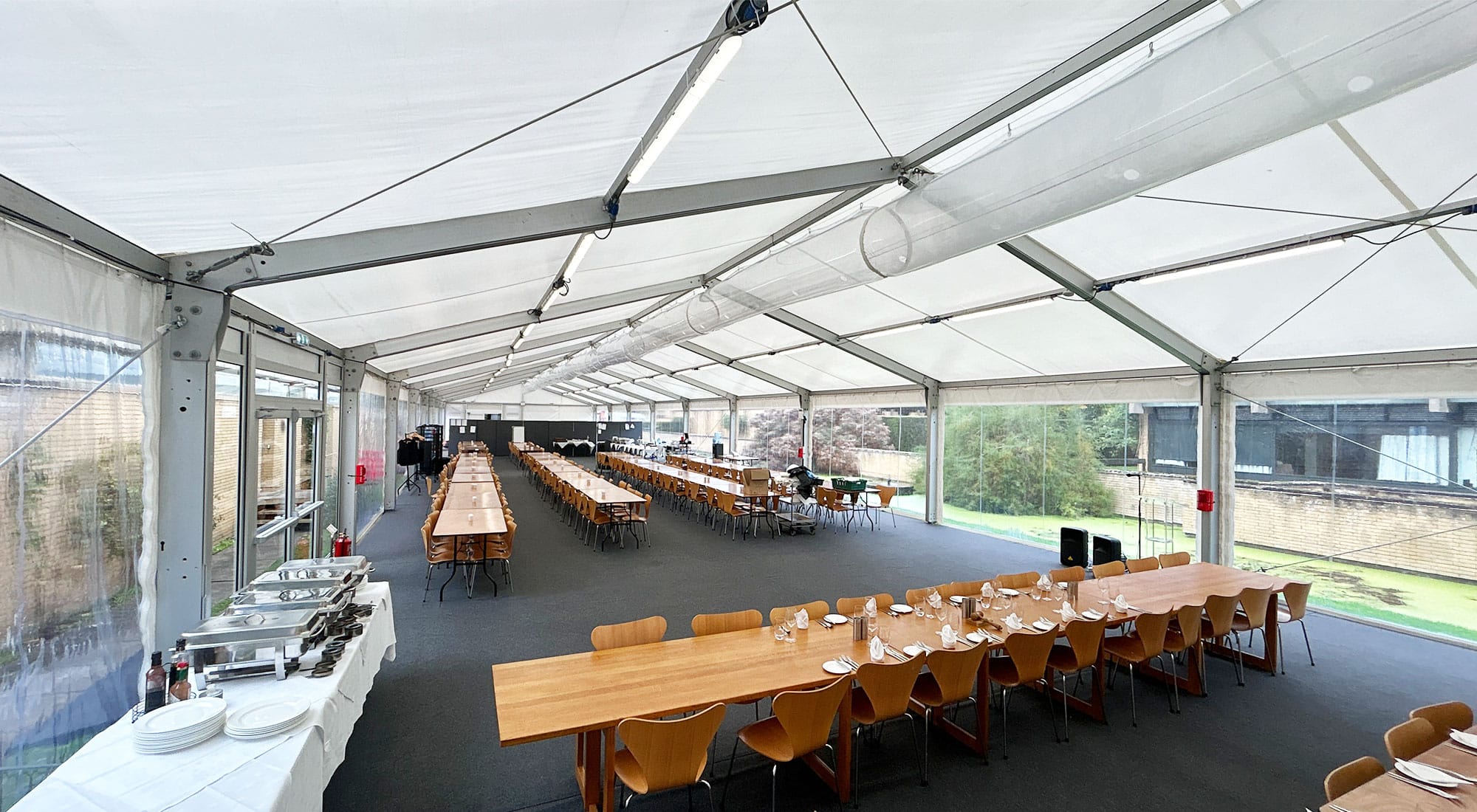
Reinforced Autoclaved Aerated Concrete (RAAC) is a type of lightweight concrete that found widespread use in the construction of numerous buildings erected between the 1950s and 1990s. This concrete variant is notable for its substantial aeration, resulting in distinct material properties compared to conventional concrete. It is frequently employed in roofing applications, and occasionally in flooring and wall structures.
During the 1990s, structural engineers started noticing a concerning trend where RAAC concrete failed to meet its expected longevity. The material exhibited signs of weakening due to its susceptibility to moisture absorption, and the steel reinforcements within began corroding over time, prompted by moisture accumulation.
Following a recent incident involving a roof collapse at a primary school in the UK, the UK Government property agency declared that “RAAC concrete is now beyond its intended lifespan and poses a risk of collapsing.”
Schools constructed between the 1950s and 1990s face a heightened risk of RAAC concrete being present within their structural elements. At least 214 schools across the UK have experienced some level of impact due to RAAC-related issues. These problems have forced many schools to either partially or entirely close affected facilities, causing delays in the start of terms and creating significant disruptions. Consequently, school management is actively seeking solutions to address these challenges.
Guidance on dealing with RAAC-related issues is accessible here. Some schools are compelled to explore their options due to the substantial and unsafe levels of RAAC concrete within their buildings. The UK government has assigned dedicated Department for Education (DfE) caseworkers to all settings known to contain RAAC concrete, providing tailored solutions and support. Government guidance also promises that “schools with confirmed RAAC concrete will receive funding for capital-intensive mitigation works, such as shoring and on-site temporary accommodation.”
Reports have emerged of hospitals, restaurants, chapels, office buildings, and various other structures grappling with the discovery of RAAC concrete within their premises.
Fews offers specialised temporary structures designed to serve as effective solutions in response to RAAC-related issues. Our commitment to quality and safety is unwavering, and we hold accreditation for working on educational and government sites. Learn more about how Fews’ temporary structures can provide flexible and ideal temporary solutions for any RAAC concrete crisis here.
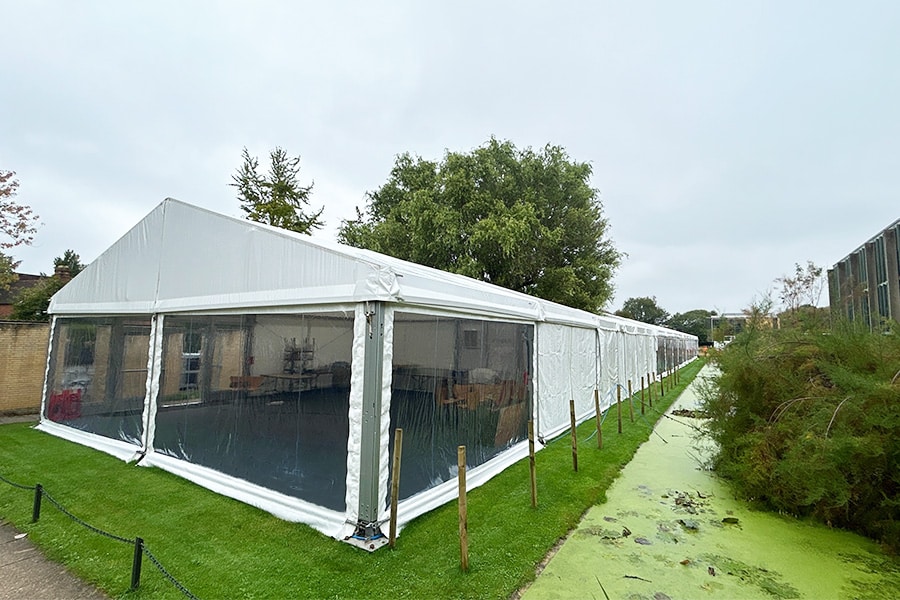
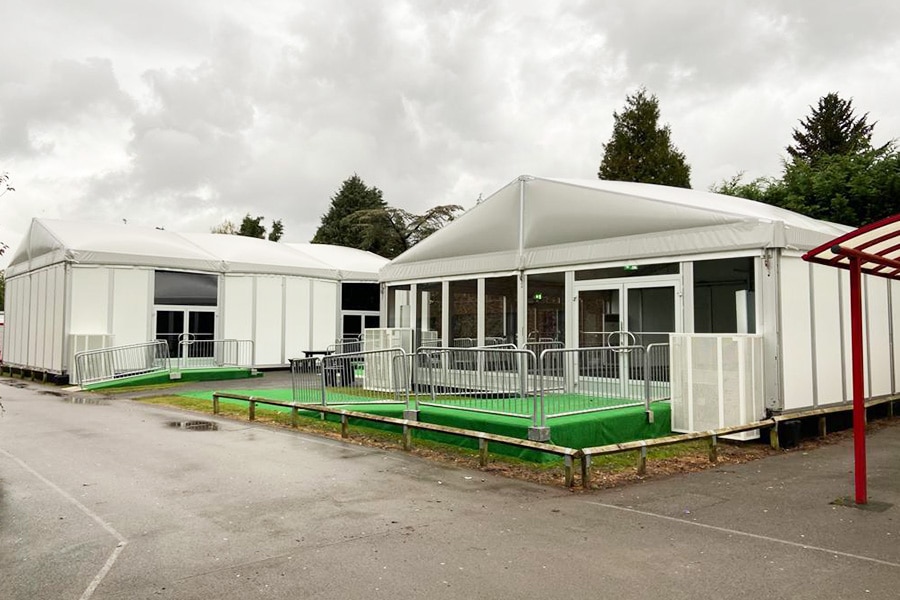
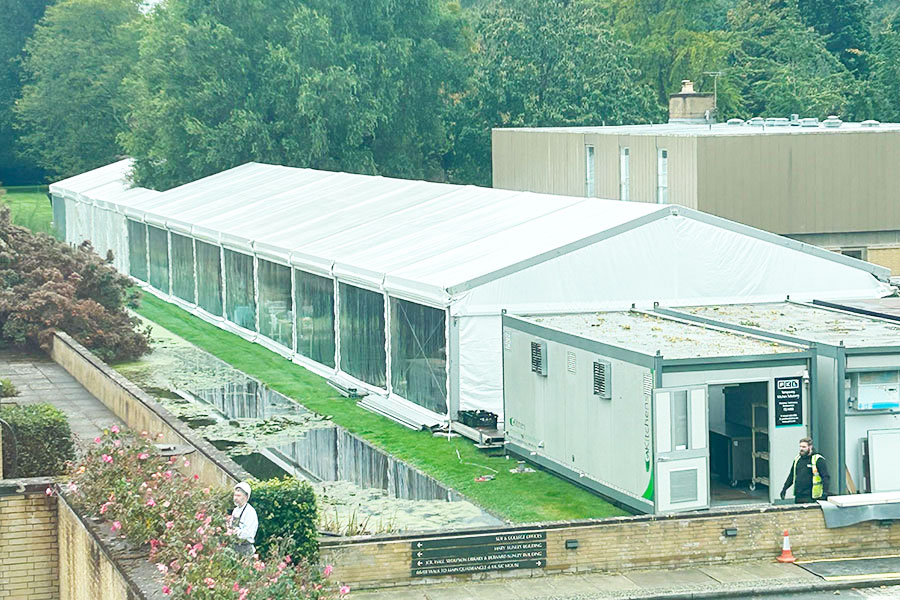
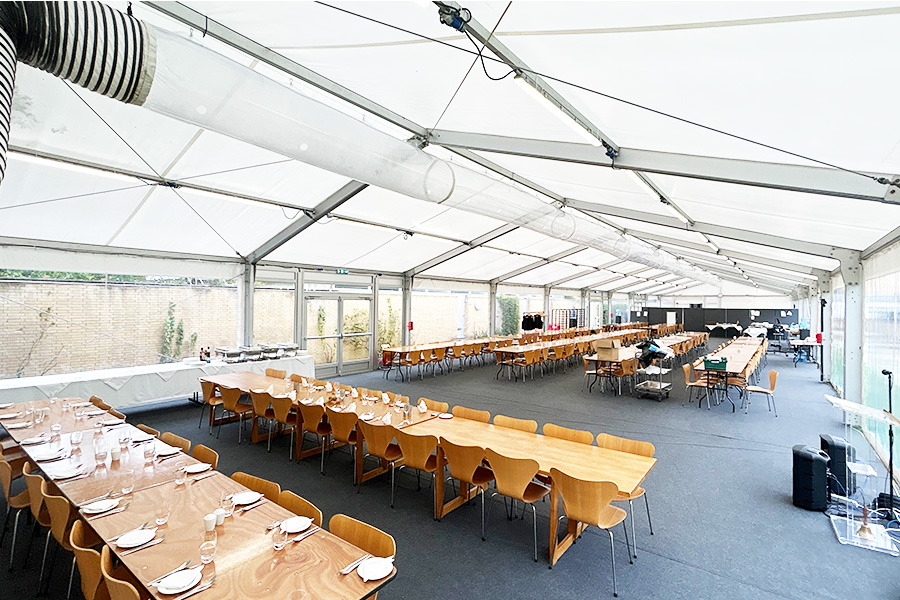





Call 01527 821789 or email info@fews.co.uk
Matt, Molly, Lucy and Jack are our dedicated commercial team with extensive expertise and experience designing event solutions. One of them will guide you through every step of the process.
Request a Quote